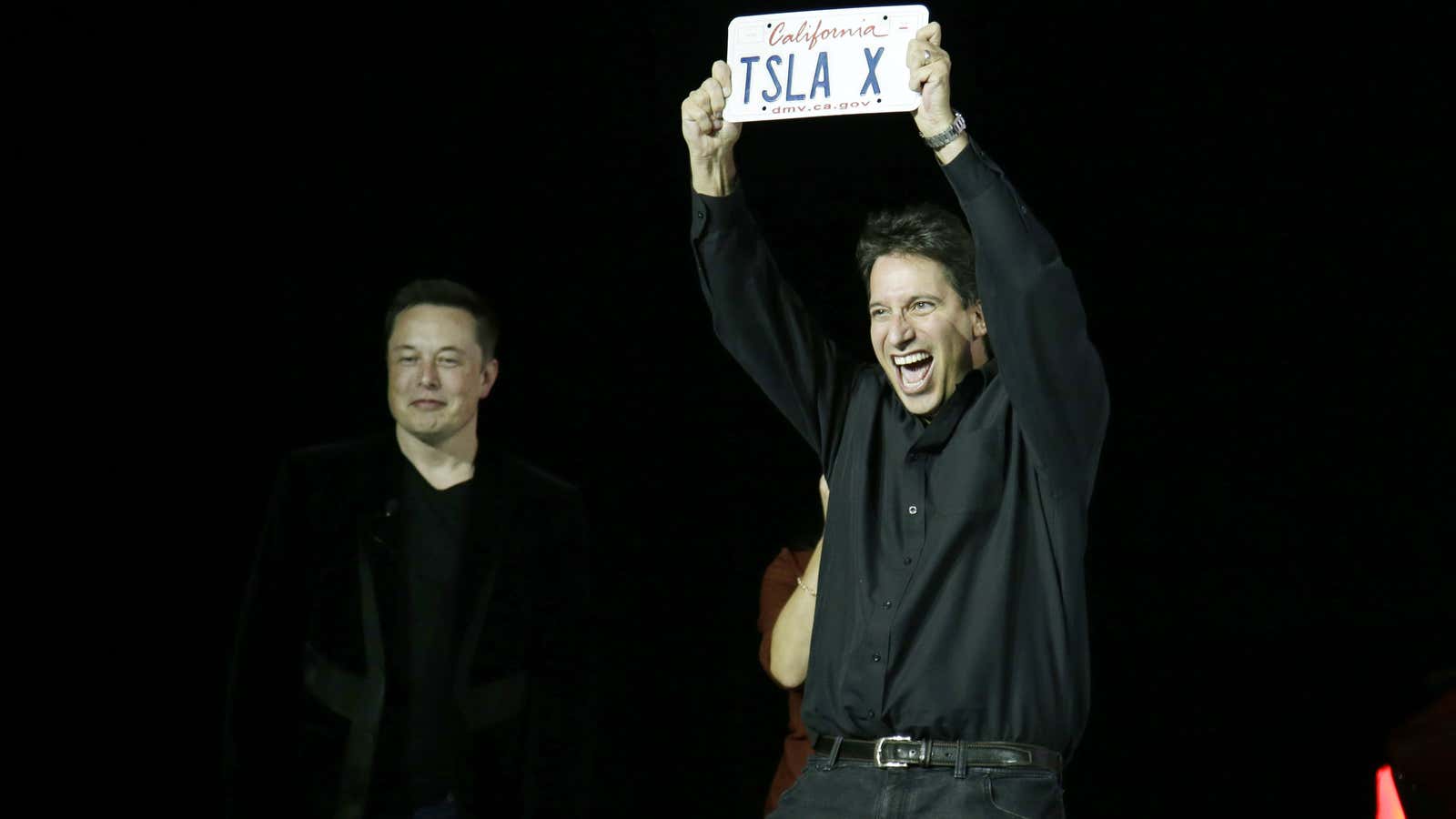The electric car race is escalating, and if you want credibility, especially if you’re a startup, it seems increasingly helpful if you have at least one of three things—a billion dollars to spend, an investment from Microsoft founder Bill Gates, or one or more employees you poached from Tesla Motors.
Faraday Futures, a Gardena, California electric-car startup, which has come seemingly out of nowhere, checks two of those boxes: It has announced a $1 billion ante by a Chinese billionaire named Jia Yeuting, and stolen at least two former Tesla executives. (Faraday also checks a bonus box, for good measure. It poached Porter Harris, a battery executive from SpaceX, the space vehicle venture owned by Tesla CEO Elon Musk.)
What is Yeuting up to? Is it rational to commit such a sum in an already crowded electric-car market with a middling sales record, at a time when analysts are raising more and more questions (paywall) about Tesla’s own future? Perhaps not, yet Yeuting’s stated strategy reads straight from Musk’s playbook—establish your street cred by first creating a knock-your-socks-off super-electric showcase vehicle, then follow up with more reasonably priced cars aimed at mainstream buyers.
Faraday isn’t alone in pursuing this path to electric-car stature. There is also Atieva, a Silicon Valley electric-car startup co-founded by Bernard Tse, a former Tesla vice president, and backed by China’s BAIC Motor.
Quantumscape, backed by Gates along with Volkswagen and venture capitalist Vinod Khosla, is the most talked-about advanced battery startup in Silicon Valley. Although it’s not clear what progress it has made thus far toward an electric-car battery, it’s thought to have raised tens of millions of dollars in venture capital and possibly much more.
As with so much of the electric-car race, Musk is responsible for the benchmarks of authenticity. In 2014, he firmed up plans to spend $5 billion on a “gigafactory” to mass-produce cheaper lithium-ion batteries. (First production comes next year, even though he has spent just $260 million so far, prompting queries on whether the price tag is meant as much to scare rivals as a reflection of actual planned expenditures.)
Even South Korea’s LG Chem, which many experts regard as the battery industry’s global leader, is finding it hard to stay aloof from this strange side of the race. Observing the planned expansion of LG’s Michigan battery plant, industry researchers and reporters have noted that it would beat Tesla as the first US “gigafactory,” capable of producing 1 gigawatt of batteries a year.
But the standard route to the inner circle of electric car-makers is by pledging to actually spend a billion dollars.
In October, Dyson, the British vacuum cleaner company, announced plans for a $1 billion factory to manufacture advanced batteries. While founder James Dyson is respected for his inventing and engineering chops, he appears to have taken a leap with the first $90 million of the planned spending, putting it into the acquisition of a long-shot battery startup called Sakti3.
On Nov. 6, Toyota became the biggest player to dive into the maw. It announced a billion-dollar Silicon Valley research center for artificial intelligence. The applications for the center’s work would be cars with autonomous driving functions, but also robotics unrelated to vehicles.
